Keyword difficulty checker is a must have if you're willing to rank easily on search engine, find out what keyword difficulty is and the best tools in 2023
We all know that keywords are the most important aspect of a successful digital marketing & and search campaign. You'll need the right keywords to target in your content, ads, and other online marketing efforts to take your website to as many people as possible and increase brand awareness.
However, not all keywords are the same. Some keywords are more difficult to rank for than others, and this is where a keyword difficulty checker comes in.
In this article, we'll discuss everything you need to know about keyword difficulty checkers, why they matter, and how to use them to your advantage.
What Is Keyword Difficulty?
So, what keyword difficulty really is? Is it some sort of keyword type, such as long-tail or short-tail? Well, keyword difficulty, shortly known as KD in the digital industry, is a metric that helps you understand how hard it would be to rank for a particular search phrase.
Keyword difficulty is measured on a scale between 0 to 100; the higher the number is, the more difficult it'll be to rank on search engine result pages for that particular keyword.

What is a Keyword Difficulty Checker?
When conducting keyword research, it's vital to consider the keyword difficulty of your targeted keywords. When you know how hard it will be to rank for a particular keyword, you can better decide which keywords are worth targeting.
And in order to know the difficulty, you should and must have to use a keyword difficulty checker. A keyword difficulty checker is a tool that helps you evaluate the difficulty level of a particular keyword.
Keyword difficulty tools analyze a variety of factors, including keyword search volume, the authority/rating of the top-ranking pages in search engine results pages (SERPs), and keyword competition to determine keyword difficulty.
The keyword difficulty tool then assigns a difficulty score to the keyword, which can help you determine whether it's worth targeting or not.

Why Do You Need A Keyword Difficulty Checker?
Keyword difficulty checkers are as important as keyword research and keyword monitoring. Without a keyword difficulty checker, you won't know what types of keywords you're dealing with.
There are a variety of reasons that make any digital marketer or SEO professional use keyword difficulty tools. They help you:
- Know a keyword's ranking possibility
With a keyword difficulty checker, you can determine if it's worth trying to rank for a particular keyword. If the keyword's difficulty is higher, then it'd be too difficult to rank for; it may not be worth investing time and resources in trying to rank for it, especially for those with new websites or who've just started their search engine optimization journey.
- Identify low-competition, high-volume keywords
By analyzing the difficulty level for a keyword, you can find a keyword that will easily rank on search engines and bring higher traffic to your website. For example, if the competition is low and the search volume is high for a particular keyword, you may have found a great keyword to target.
- Save time and resources
Keyword difficulty checkers help you avoid wasting time and resources on keywords that are too difficult to rank for your targeted niche. You can enhance your chances of ranking on search engine result pages by focusing on keywords with a reasonable level of difficulty.
- Identify the level of effort required
Knowing how difficult it's to rank for a certain keyword is essential; otherwise, you won't know how much effort it will take to rank on search engines. Using a keyword difficulty-checking tool, you can assess the effort you'll require to rank for a specific keyword. This can help you plan your resources and adjust your time and budget more effectively for your content marketing.
- To prioritize your keyword targeting
Not all keywords are created equal. Some keywords will bring in more traffic and conversions than others. By using a keyword difficulty checker, you can prioritize your keyword targeting based on the potential value of each keyword. Which will help you focus on the keywords that are most likely to bring in the best return on investment.
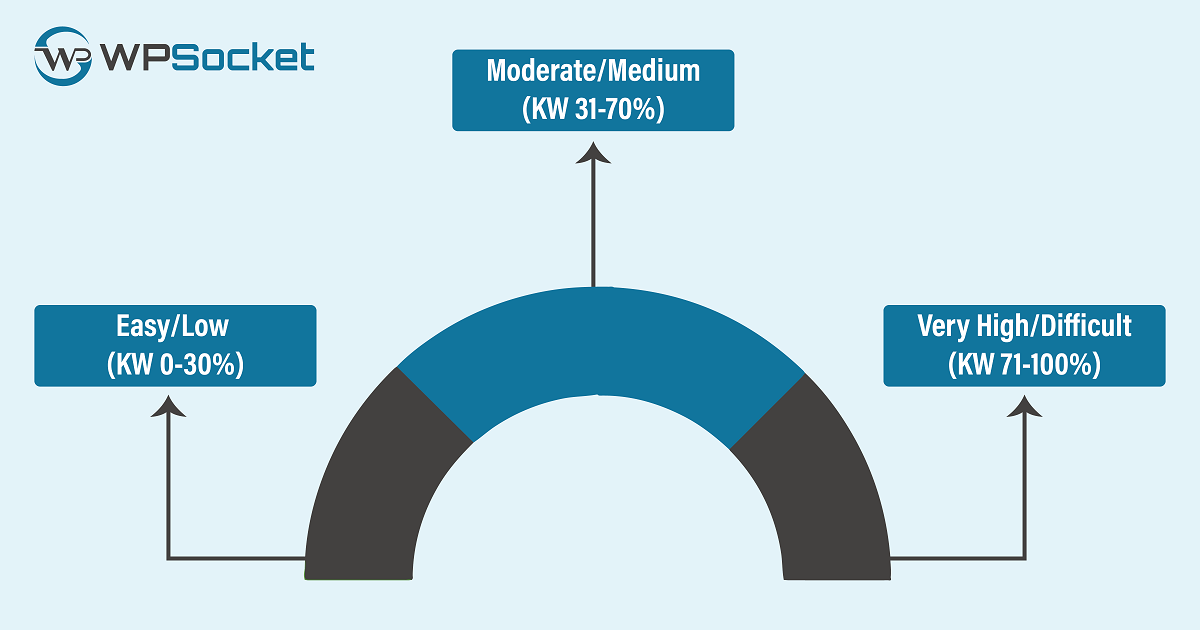
What Are The Different Levels Of Keyword Difficulty?
There are three primary levels of keyword difficulty: easy/low, moderate/medium, and very high/difficult.
Here is a detailed explanation of each level, along with the percentage of difficulty.
- Easy/Low Difficulty Keywords (KW 0-30%)
Easy or low-difficulty keywords are typically long-tail keywords and more specific phrases that have a low competition rate. These keywords are usually three to four words or longer and have a clear intent behind them. Examples of easy/low-difficulty keywords include "weight loss guide for 18 years old," "best vegan recipes for new vegetarians," and "how to wash your Nike Air Jordan."
- Moderate/Medium Difficulty Keywords (KW 31-70%)
Moderate or medium-difficulty keywords are slightly more challenging to rank for than easy keywords. These keywords have a higher search volume and more competition, making it harder to rank for them.
Keywords with moderate and medium difficulty are also known as mid-tail keywords.
Examples of moderate/medium difficulty keywords include "Top 3 best WordPress themes for blogs," "How to install a WordPress plugin," and "best WordPress hosting providers."
- Very High/Difficult Keywords (KW 71-100%)
Very high or difficult keywords are the most challenging to rank for, and they have the highest competition rate. These keywords usually have a high search volume and are highly competitive, making it challenging to rank for them. Examples of very high/difficult keywords include "Car mechanic," "gaming laptop," and "best credit cards."

Keyword Difficulty Checker Best Practices
To get the most accurate and actionable insights, you should follow some best practices when using a keyword difficulty checker tool.
- Use Multiple Tools
It's best to use multiple keyword difficulty checker tools to get a more comprehensive understanding of a keyword's difficulty level because there are now lots of different tools available for keyword difficulty, and these tools use different algorithms and data sources, so comparing results can help you get a more accurate picture of the keyword's competitiveness.
- Consider long-tail keywords
Long-tail keywords are longer and more specific keyword phrases that have less competition than broader keywords. While they may have a lower search volume, they are often easier to rank for and can drive more targeted traffic to your website. Use keyword difficulty checker tools to find long-tail keywords that are relevant to your business and have a reasonable chance of ranking.
Additionally, you can also use a mix of both short-tail and long-tail keywords in your content to maximize your reach.
- Consider user intent
When choosing keywords to target, it's important to consider user intent. User intent refers to the reason behind a user's search query. User intent also plays a good role in keyword difficulty
What Are The Best Keyword Difficulty Checker Tools?
With the availability of numerous keyword difficulty checker tools, it has become increasingly challenging to determine which one is the best among the hundreds of options available.
Let's check some of the best keyword difficulty checker tools, which are famous for providing real-time and accurate keyword difficulty data:
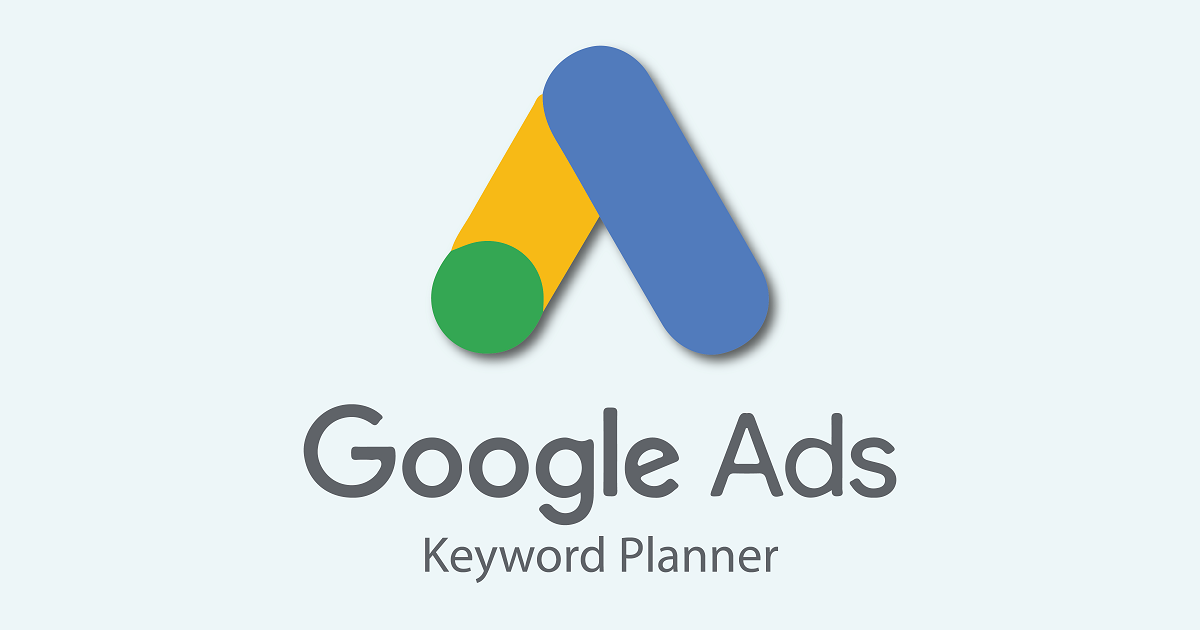
Google Keyword Planner
If you want to discover keyword difficulty without any limitations and for absolutely free, Google Keyword Planner is the best option for you.
It is a free tool that allows users to analyze keywords and determine their difficulty level. Keyword difficulty metrics in Google keyword planner are known as "Competition."
As for competition level, Google keyword planner shows three levels of competition, they are:
- Low
- Medium
- High
With Google keyword planner, you can average monthly searches, top bids for pay-per-click campaigns, and many more.
The main issue with this tool is that it's not as comprehensive as other options, especially at the competition level. It doesn't show you the percentage of specific keywords.
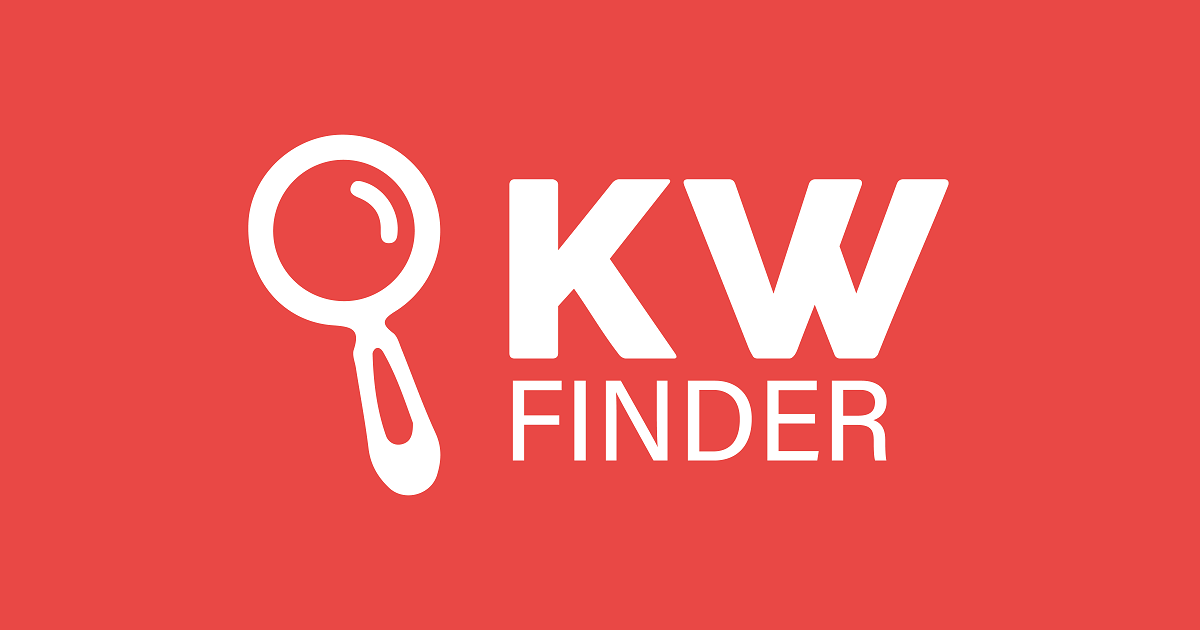
KWfinder
KWfinder by Mangools is an easy-to-use keyword research tool that offers a keyword difficulty checker. Kwfinder provides a score that ranges from 0 to 100, with higher scores indicating greater difficulty and lower means easy.
KWfinder also provides additional metrics such as search volume, CPC, PPC, and trend data.
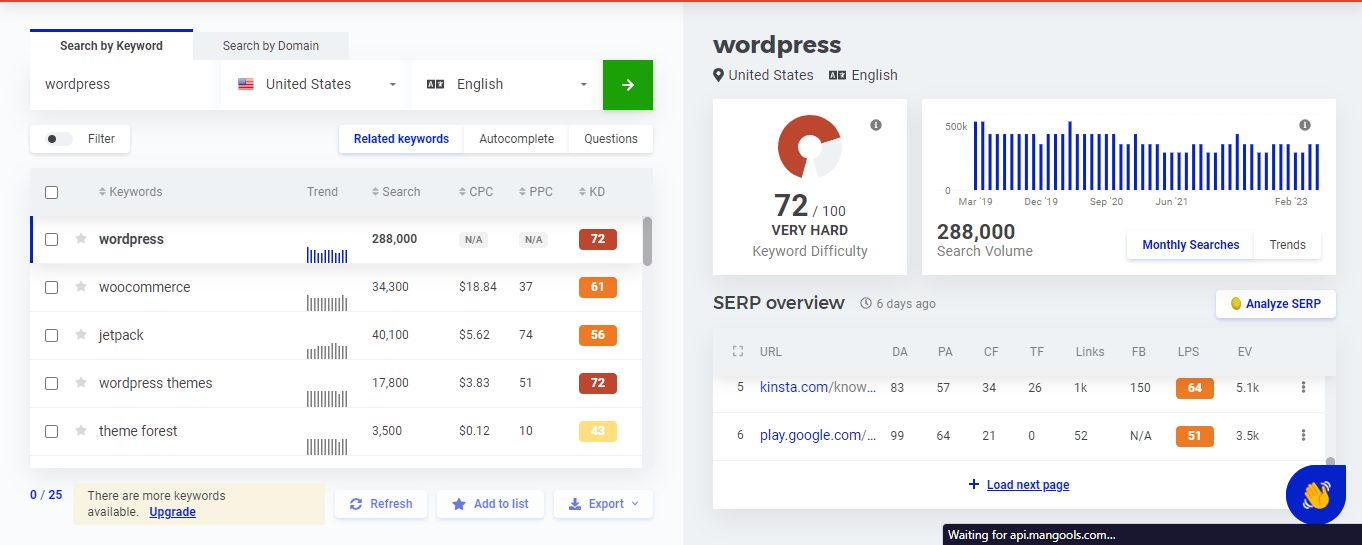
To get the best of the Kwfinder tool, you'll have to subscribe to its monthly plan.

SEMrush
If you're seeking a keyword difficulty tool that will not only give you the difficulty number but also top competitors who are ranking on search engines with the keyword, SERP features, related keywords, questions, and more.
Then SEMrush is the best tool for you. The tool estimates keyword difficulty based on competitive factors and algorithms to provide accurate data.
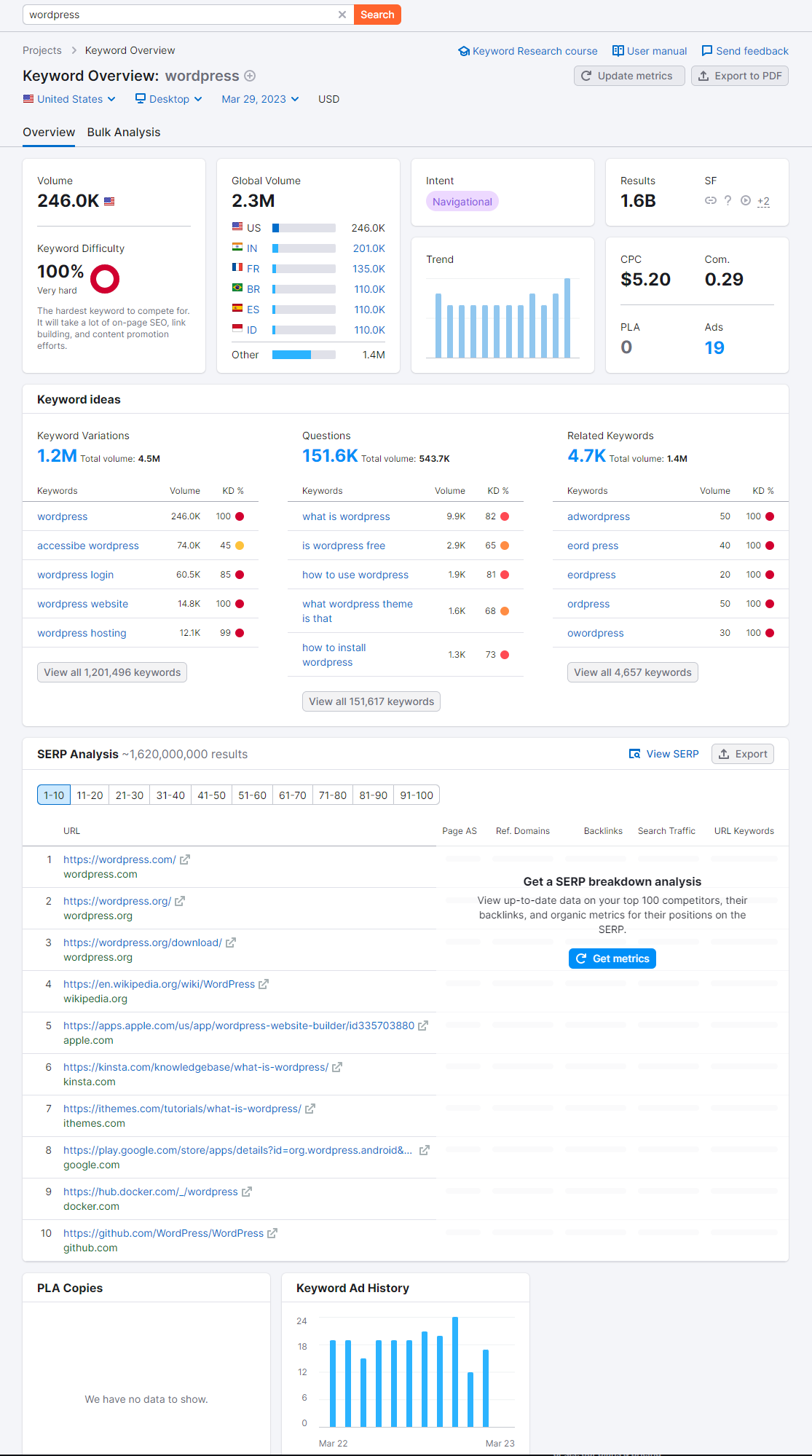
Here's a SEMrush coupon for you to enjoy all of its premium features free for 14 days!

Ahrefs
Ahrefs is a comprehensive SEO tool offering various features, including a keyword difficulty checker. Ahrefs accurately estimates how difficult it is to rank for a particular keyword as it provides other essential metrics such as DR, UR, Backlinks, and traffic of competitors along with keyword difficulty!

Ahrefs keyword difficulty levels:

Is It Mandatory To Use Different Keyword Difficulty Checking Tool?
The answer varies, depending on the tool you're using. For instance, if you're using a free keyword difficulty-checking tool, then it is highly recommended that you use multiple keyword difficulty-checking tools.
Because free tools are limited in scope and accuracy, using multiple tools will give you a more understanding of the keyword competition level.
Also, as we said, different keyword difficulty-checking tools use different algorithms to calculate the competition level. Some tools rely heavily on the number of backlinks a page has, while others may focus on the domain authority or on-page factors.
On the other hand, if you're using a paid tool such as SEMrush or Ahrefs, then you don't necessarily need to use multiple tools. These tools are highly advanced and comprehensive, and they provide a wealth of data and insights that can help you make informed decisions about your SEO strategy.




